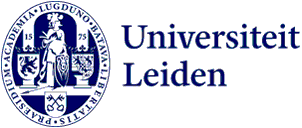
Mapping historical marine life: Johannes Müller is researching the history of ecosystems
The underwater world around present-day Indonesia has changed greatly in recent centuries as a result of human activity. University lecturer Johannes Müller has been awarded an NWO XS grant to map the history of the Indonesian ecosystems.
‘We’re seeing a drastic decline in both the biomass and the biodiversity of fish in all parts of the world,’ says Müller. ‘We have a reasonable amount of historical data for the northern hemisphere to confirm that decline, but we know very little about the southern hemisphere, especially the former colonial regions.’
18,000 specimens collected
This is not due to a lack of sources. ‘We have a fantastic source collection of a Dutch military physician and scientist, Pieter Bleeker. During his life, he mapped precisely where all kinds of fish species were located in the seas around present-day Indonesia, and whether they were rare or numerous. For this purpose, he built up a gigantic collection of 18,000 specimens, which he sent back to the Netherlands. Most of these are now held in Naturalis. On the basis of this collection, it is very possible to reconstruct what the seas were like at that time.’
There can be no doubt that the marine life back then is very different from now. Müller: ‘In the 1970s, in the name of “development aid”, fishing took place using extremely heavy equipment, which completely scraped the seabed in many areas. Fortunately, Indonesia prohibited this “bottom trawling” in 1980, but it must have changed the ecosystems.’ Mapping where Bleeker saw which fish species makes it possible to substantiate these changes. Have distribution areas become smaller? Did species live somewhere else? Have some species of fish become extinct in certain places?

How did he obtain the fish?
The research will also yield information about historical biological research. ‘We’d also like to know how Bleeker obtained his knowledge,’ explains Müller. ‘He actually did hardly any fieldwork himself, but rather gathered his knowledge, for example, by buying fish at the market, getting specimens from other collectors or paying local people to catch fish for him. This means we’ll be able to find a great deal of local knowledge, allowing us to adjust the image of the colonial scientist who studies nature like a kind of Freek Vonk. This research will therefore offer a unique insight into the interaction between local expertise and colonial science.’
Databases
Ultimately, Müller hopes to incorporate the data from Bleeker’s 500 texts in various existing databases. ‘We’re fortunate that he described very precisely the location of what he found or what was sent to him. This is interesting for large biodiversity databases, which want to create maps of which species lived where. A great “by-catch” of this is that many of the names of fish species were recorded in Dutch or a local language. This provides a vast wealth of linguistic data and makes the information more accessible to people without a scientific background, who don’t know the Latin names. So we’re really going to open up the ecological history of this region in much more detail.’
